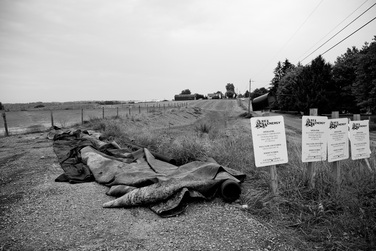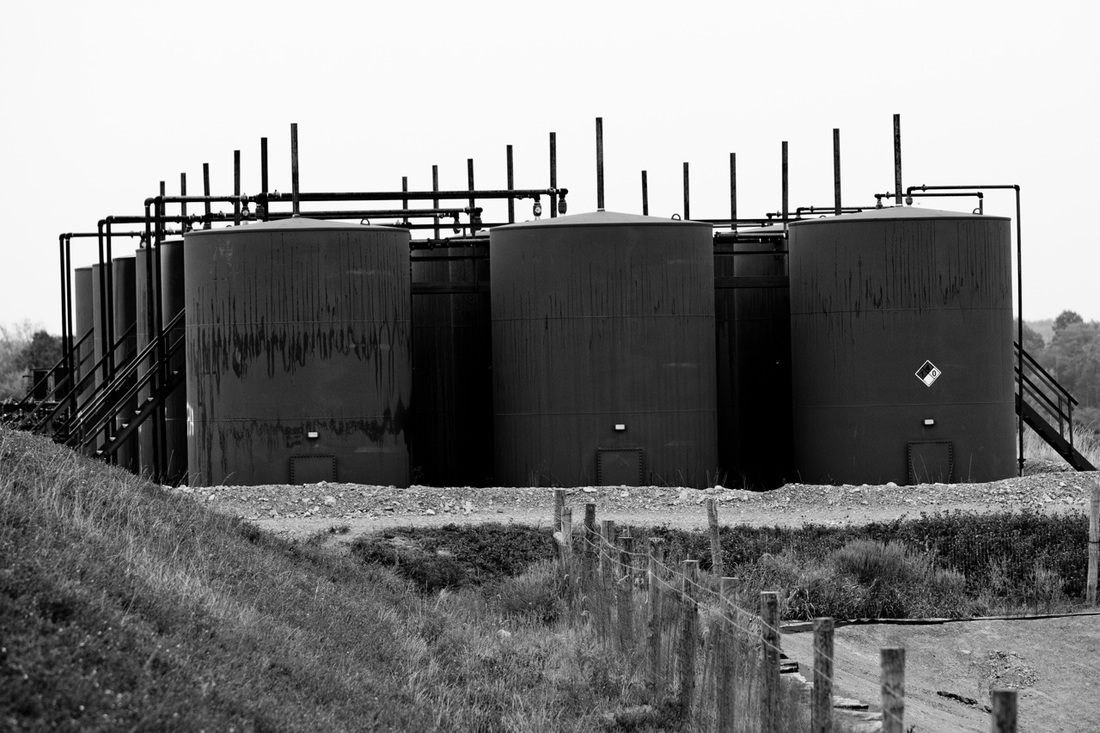I'm the man you met in the drive at the Cratty well (EM Energy, Well API Number 019-22387, OGO Number OGO-39487, Facility ID 782174) in Allegheny Township in northern Butler County. You may recall that I was concerned about the reckless 4 day flaring (it is still ongoing, by the way) of a well with a low cloud cover four hundred yards from where my granddaughter lives - that's why I called the DEP Emergency number to report the dangerous situation I was witnessing. You may remember that I was concerned because my wife, who has scarring on her lungs from previous exposures, was also experiencing difficulties. You may also remember that I was pretty heated.
Flaring is a dangerous process and one that I've had lots of experience with. Flaring by EdgeMarc (aka EM Energy) is a particularly dangerous proposition because they are so reckless (not that any drillers I have observed are not reckless). I have witnessed them, over and over, flare wells with little concern for nearby residents. In this most recent flaring, we had several days in a row where we had a low hanging cloud cover and little wind. The Southwestern Pennsylvania Environmental Health Project says that days like this are "very unhealthy." They suggest that people should "avoid extended heavy exertion, close windows, go somewhere else, turn on air filter." At the very least, nearby residents should be warned well in advance of a flaring so they can be proactive, make informed choices to protect their health.
I wanted to get back to you about the studies I cited yesterday that you derided as "skewed" and the product of known foes of fracking.
The first study I cited, out of your alma mater, the University of Pittsburgh, was published in June (http://journals.plos.org/plosone/article?id=10.1371/journal.pone.0126425 ). You asked about sample size and the length of study. I believe you will find the information you asked about in the link.
The second study I cited, out of the University of Pennsylvania and Columbia University, was published in July (http://journals.plos.org/plosone/article?id=10.1371/journal.pone.0131093 ). Once again, the information you requested is available.
I think your derision is a deplorable display by an employee of a state agency.
I don't believe that your degrees, no matter how well you are trained, permits you to slander or impugn the integrity of scholars of high repute; your opinion does not have the weight of systematic study reflected in the scholarly articles published in a well regarded journal. If you can't back up your opinion with anything more than, "I know these people", it's probably better for you to keep your opinions to yourself (and I seriously doubt you know them well enough to slander their work). More to the point, these studies are not isolated utterances by random scientists. They are, rather, reiterations and elaborations of previous studies conducted at other institutions that have reached similar conclusions or conclusions that pointed to the need for more research.
More to the point, there have not been enough studies done to quantify the risks. The studies I cited were just initial forays into the research that should have been conducted BEFORE drilling was permitted and peoples' lives and health were put at risk. For you to contend that the work cited was skewed or that the authors were prejudiced but not point to anything to address my concerns about my granddaughter's (and wife's) health was both irresponsible and betrayed an ignorance on your part. To suggest that your degrees trumped "stuff I got off the internet" also pointed to a sort of arrogance - I've actually devoted a good bit of time the last 5 years meeting with the scientists that you've derided and many, many more. I'd stack my knowledge of the scientific literature surrounding the health concerns around fracking against yours (more so now, after meeting you).
Being an "activist" doesn't equate to being ignorant. I would contend that my "activism" sprung from my increasing awareness. Being an activist doesn't mean that I know all other activists and for you to insinuate that I might know the activists you claim followed you about is both ludicrous and, because I told I didn't know anything about anyone following people, insulting.
During testimony at the EPA hearings on methane emissions in Pittsburgh earlier this week, I said, "many of us in front line communities have little faith in regulatory and enforcement agencies such as PA DEP, which we've labeled Don't Expect Protection, and the EPA". My dealings with you have only reinforced my feelings in this regard.
This point was driven home to me when the air quality inspector that was also on the scene told me that as long as he couldn't see anything coming out of the stack, EM Energy was in compliance with regulations. Apparently, poisoning people is permissible if an inspector can't see the poisons with his naked eye.
It seems ridiculous to me that an air inspector's only tool is his naked eye. It seems preposterous that an agency that has a mission statement that reads, in part, "protect Pennsylvania's air, land and water from pollution" isn't armed with even rudimentary detection tools.
I realize, as Ed Orris (outgoing supervisor of air in Meadville) told me, you can only enforce what you're mandated to enforce, but it gives me little comfort to know that the Commonwealth of Pennsylvania deems the health and safety of a four year old less important than gas production and that you, an employee charged with protecting, deem scholarly research from reputable scientists as nothing more than a propaganda tool and activists as nothing but ignorant hindrances to the continued exploitation of a dirty fuel.
M B-C



 RSS Feed
RSS Feed
